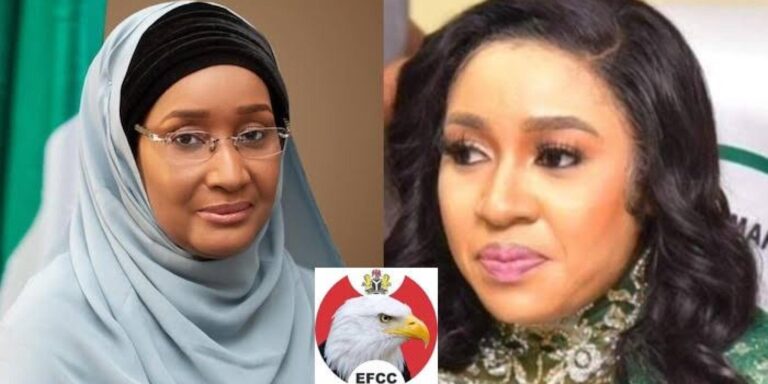The National Association of N-Power Beneficiaries (NANB) has called on the Economic and Financial Crimes Commission (EFCC) to release the full report of its investigation into alleged corruption within the Ministry of Humanitarian Affairs and Poverty Alleviation.
The Ministry has been under scrutiny following allegations of financial mismanagement, prompting public interest in the outcome of the investigation.
The EFCC is yet to release the reports of its investigations into alleged fraud involving former Ministers of Humanitarian Affairs, Disaster Management and Social Development, Sadiya Umar-Farouk and Betta Edu.
The investigations, launched months ago, also involved a former coordinator of the National Social Investment Programme Agency (NSIPA), Halima Shehu, and a contractor, James Okwete.
However, in a letter dated May 2, 2025, addressed to the Executive Chairman of the EFCC and obtained by SaharaReporters on Sunday, NANB urged the anti-graft agency to make public the findings of its probe, citing the critical impact of the alleged misconduct on national development and public welfare.
Signed by Bashir Ladan, National Secretary of NANB, on behalf of the National President, the letter emphasised that transparency and accountability remain foundational to Nigeria’s democratic governance, adding that the release of the report would reinforce public trust in anti-corruption efforts.
The group called on the EFCC to publicly disclose the report or provide access to civil society organisations and concerned citizens.
“We are writing to formally request the release of the comprehensive report from the investigation carried out by the Economic and Financial Crimes Commission (EFCC) into allegations of corruption in the Ministry of Humanitarian Affairs and Poverty Alleviation.
“Given the grave implications of the alleged misconduct on national development and public welfare, it is imperative that the findings of this investigation be made available to the public. Transparency and accountability are critical pillars of our democracy, and the release of this report would reinforce public trust in anti-corruption efforts.
“We respectfully request that the EFCC make the full report available, either through public disclosure or by providing access to interested citizens and civil society groups,” the letter added.
N-Power is a Nigerian government social intervention programme initiated under the administration of former President Muhammadu Buhari in 2016. It is designed to address unemployment and poverty by empowering young Nigerians with skills, training, and employment opportunities.
It is part of the broader National Social Investment Programmes (NSIPs), which aim to alleviate poverty, support vulnerable populations, and stimulate economic growth. The programme primarily targets young Nigerians aged 18 to 35, including both graduates and non-graduates.
However, the programme has been marred by corruption, mismanagement, and inefficiencies over the years.
In November 2024, N-Power beneficiaries across the country announced plans to protest in all states of the federation and the Federal Capital Territory (FCT) over the nonpayment of their one-year stipends by the Nigerian government.
Led by Adeshina Adex, the beneficiaries lamented that they had not received their stipends from October 2022 to September 2023.
They noted that although the programme was suspended by the Nigerian government, they were engaged and their services were utilised prior to the suspension.
It was learnt that batches A and B, comprising 200,000 and 300,000 youths respectively, were selected from all 774 local government areas of the country and paid a monthly stipend of N30,000 until the programme was discontinued in June 2020.

